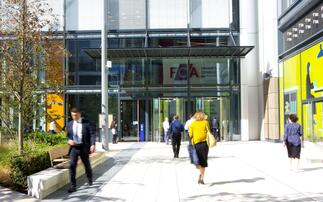The Association of Independent Financial Advisers (AIFA) has hit out at "spiralling" fee rises from the Financial Services Authority (FSA), Financial Ombudsman Service (FOS) and Financial Services Compensation Scheme (FSCS).
The FSA announced in February that its annual funding requirement would rise by £80m this year.
AIFA policy director Chris Hannant said the trade body was "concerned" about the hike.
"The cost of regulation for financial firms is spiralling," he said. "Given the difficult financial environment advisers are operating in, we must question an overall budget increase across FSA, FSCS, FOS and Money Advice Service (MAS) of over 10%. More must be done to control costs.
"In light of the salary freezes and reductions that we are seeing in the private sector, the provision of a salary increase pot of 3.5% of FSA's total salary budget seems particularly generous.
The cost of transitioning from the FSA to the Prudential Regulation Authority and the Financial Conduct Authority will increase by nearly 200% in the coming year, Hannant said.
"If this is to be justified we must see a better, more accountable regulator when [the] FCA becomes operational in 2013."
Whilst AIFA welcomed the reduction in the amount apportioned to members' FSA fee blocks and the retention of the minimum fee at £1,000, advisers will still see an increase in fees in cash terms, he said.
"Currently firms must contend with formal regulatory fees and levies, on top of the indirect costs of regulation and compliance. These costs are burdensome for firms of all sizes.
"The FSA must look again at the cumulative effects of significant fee rises on the advice profession and guarantee that any fee increases are accompanied by a robust cost-benefit analysis to ensure they are proportionate, fair, and do not reduce vital access to financial advice."
Advisers hit out at a "soul-destroying" £60m FSCS levy announced last week.
And yesterday, the MAS said it planned to expand its operations with a £35m budget levied from the financial services sector.












